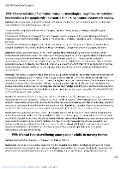| dc.contributor.author | Beji Sedláčková, Kateřina | |
| dc.contributor.author | Bártová, Alžběta | |
| dc.contributor.author | Holmerová, Iva | |
| dc.date.accessioned | 2025-06-27T11:10:54Z | |
| dc.date.available | 2025-06-27T11:10:54Z | |
| dc.date.issued | 2023 | |
| dc.identifier.uri | https://hdl.handle.net/20.500.14178/3121 | |
| dc.description.abstract | Loneliness is a subjective phenomenon. It is experienced a lack of satisfying relationship to others, whether because the subject has too few relationships or because their existing relationships do not provide the desired form of closeness (Svenderson, 2017). As defined by Peplou and Perlman (1982), the definitions of loneliness share the same concept: an unpleasant, subjective experience resulting from inadequate social relationships. Loneliness and rumination are remarkable risk factors of depression among the elderly in the both community and nursing homes (Gan at al.,2015). A Norwegian study found that 56% of nursing home residents are feeling lonely (Dragaset et al.,2011). The study from Poland found that depression was observed in 33.8% long term care facility (Horwath, Scerbinska,2017). Furthermore, another study from China shown that 14.9% residents in long term facility reported suicidal ideation (Zhang at al.,2020). Associated with one being depressed in nursing homes include pain, risk of stroke, risk of heart attack, decreased cognitive function and is also linked to increased morbidity in nursing home residents, a relationship it has been also suggested for medical inpatients (Zammit, Fiorini, 2015). | en |
| dc.language.iso | en | |
| dc.publisher | Cambridge University Press | |
| dc.relation.url | https://doi.org/10.1017/S1041610223002545 | |
| dc.rights | Creative Commons Uveďte původ-Neužívejte dílo komerčně-Nezpracovávejte 4.0 International | cs |
| dc.rights | Creative Commons Attribution-NonCommercial-NoDerivativeWorks 4.0 International | en |
| dc.title | Mental Health wellbeing among older adults in nursing homes | en |
| dcterms.accessRights | openAccess | |
| dcterms.license | https://creativecommons.org/licenses/by-nc-nd/4.0/legalcode | |
| dc.date.updated | 2025-06-27T11:10:54Z | |
| dc.subject.keyword | Mental | en |
| dc.subject.keyword | Health | en |
| dc.subject.keyword | wellbeing | en |
| dc.subject.keyword | among | en |
| dc.subject.keyword | older | en |
| dc.subject.keyword | adults | en |
| dc.subject.keyword | nursing | en |
| dc.subject.keyword | homes | en |
| dc.publisher.publicationPlace | Cambridge | |
| dc.identifier.eissn | 1741-203X | |
| dc.date.embargoStartDate | 2025-06-27 | |
| dc.contributor.organizer | International Psychogeriatric Association | |
| dc.type.obd | 110 | |
| dc.type.version | info:eu-repo/semantics/publishedVersion | |
| dc.identifier.doi | 10.1017/S1041610223002545 | |
| dc.identifier.obd | 645768 | |
| dc.subject.rivPrimary | 30000::30200::30227 | |
| dcterms.isPartOf.name | International Psychogeriatrics | |
| dcterms.isPartOf.issn | 1041-6102 | |
| dcterms.isPartOf.journalYear | 2023 | |
| dcterms.isPartOf.journalVolume | 35 | |
| dcterms.isPartOf.journalIssue | S1 | |
| uk.faculty.primaryId | 120 | |
| uk.faculty.primaryName | Fakulta humanitních studií | cs |
| uk.faculty.primaryName | Faculty of Humanities | en |
| uk.department.primaryId | 120 | |
| uk.department.primaryName | Fakulta humanitních studií | cs |
| uk.department.primaryName | Faculty of Humanities | en |
| uk.department.secondaryId | 100016430160 | |
| uk.department.secondaryName | Centrum pro studium dlouhověkosti a dlouhodobé péče | cs |
| uk.department.secondaryName | Centre of Expertise in Longevity and Long-term Care | en |
| uk.event.name | 20th IPA International Congress | |
| dc.description.pageRange | 124-125 | |
| dc.type.obdHierarchyCs | ABSTRAKT::abstrakt::abstrakt v časopisu | cs |
| dc.type.obdHierarchyEn | ABSTRACT::abstract::abstract in journal | en |
| dc.type.obdHierarchyCode | 110::130::135 | en |
| uk.displayTitle | Mental Health wellbeing among older adults in nursing homes | en |

